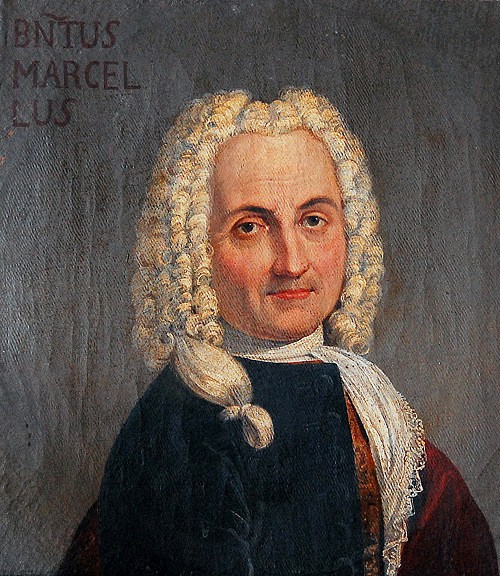Benedetto Marcello is a prominent figure in 18th-century Italian music. His diverse talents as a composer, theorist, and writer have shaped the course of Western music. Marcello’s contributions to the Baroque era continue to inspire and influence musicians and scholars alike, cementing his place in the pantheon of great composers.
Marcello’s life and work offer a fascinating glimpse into the rich musical landscape of Venice during the Baroque period. This article explores his journey from Venetian nobility to renowned composer, delving into his major musical works and their lasting impact. It also examines Marcello’s significant contributions to music theory and his enduring legacy in the classical music world.
The Venetian Noble Turned Composer
Benedetto Marcello, born in Venice in 1686, came from a noble family. His compositions often bear the title “Patrizio Veneto,” reflecting his aristocratic status. Despite his father’s wishes for him to pursue law, Marcello’s passion for music led him to study under renowned composers Antonio Lotti and Francesco Gasparini. Remarkably, he managed to balance a life in law and public service with his musical pursuits. In 1711, Marcello was appointed to the Council of Forty in Venice’s central government. His career in public service continued, and in 1730, he became the Provveditore (district governor) of Pola. Marcello’s life took an interesting turn when he secretly married his singing student, Rosanna Scalfi, in 1728. However, due to his noble status, this union with a commoner was deemed unlawful and later annulled by the state.
Marcello’s Major Musical Works
Benedetto Marcello’s most renowned work is the “Estro poetico-armonico,” an eight-volume collection of the first 50 Psalms. Published between 1724 and 1726, this monumental work features Italian paraphrases of the Psalms by Girolamo Ascanio Giustiniani. The compositions are scored for voices, figured bass, and occasional solo instruments. Marcello incorporated traditional Christian chants and Hebrew melodies, including liturgical and Sephardic songs, into these Psalms. His instrumental catalog includes keyboard sonatas, sinfonias, and concertos, mostly composed before 1710. Marcello also wrote nearly 400 cantatas, oratorios, and chamber works for singers. His opera “La Fede riconosciuta” was produced in Vicenza in 1702, though he had little sympathy for this form of composition.
Marcello’s Contribution to Music Theory
Benedetto Marcello’s theoretical writings had a significant impact on musical practices and esthetics in the early 18th century. His most influential work, “Il teatro alla moda” (The Theater à la Mode), published anonymously in Venice in 1720, was a satirical pamphlet that criticized the excesses of Italian opera. In this treatise, Marcello advocated for a return to simplicity and naturalness in music, emphasizing the importance of melody, harmony, and text. He spared no one in his critique, targeting composers, singers, and directors alike. Marcello’s views on ancient Greek music also shaped his theoretical approach. He believed that Greek music represented a golden age of artistic expression and sought to incorporate elements of it into his compositions. His theoretical contributions helped set the stage for the Classical era in Western music.
The Lasting Impact of Benedetto Marcello
Benedetto Marcello’s influence on Western classical music has been significant and long-lasting. His most renowned work, the “Estro poetico-armonico,” a collection of Psalm settings, gained widespread popularity throughout Europe. Cardinal Ottoboni in Rome decreed that every one of his accademie should begin with a composition from this collection. Marcello’s sacred vocal music was highly respected by his contemporaries and used in teaching until the late 19th century. His treatise, “Il teatro alla moda,” a satirical critique of the opera world, had a considerable impact on musical practices and esthetics. Through his advocacy for simplicity and a return to ancient Greco-Roman values, Marcello helped set the stage for the Classical era in Western music.
Conclusion
Benedetto Marcello’s life and work offer a captivating glimpse into the musical landscape of 18th-century Venice. His journey from Venetian nobility to renowned composer showcases a remarkable balance between public service and artistic pursuit. Marcello’s compositions, particularly his “Estro poetico-armonico,” have had a lasting influence on Western classical music. His theoretical writings, especially “Il teatro alla moda,” have had an impact on musical practices and esthetics, helping to set the stage for the Classical era.

